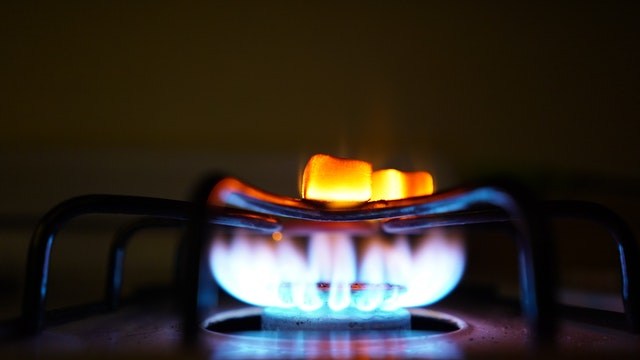The Belgian Federal government on Wednesday updated its emergency plans in the event of shortages of natural gas.
The plan envisages a three-stage preparation system, including a pre-alert phase, alert phase, and emergency phase, according to a government document seen by Belgian broadcaster RTBF.
The government's energy policy will be adjusted to suit any potential disruption of gas supply that may occur in the context of Russia’s war against Ukraine.
The document, issued by the Federal Public Service Economy (FPS Economy), states that, for the time being, there is no emergency in the energy supply in Belgium, adding that gas deliveries from Russia have so far been stable and contracts have been respected.
The report also notes that Belgium is importing more gas from Russia than it did in 2021.
Alternative gas imports
Belgium has several options for receiving gas from abroad. It is connected via gas pipelines to Germany, the Netherlands, Luxembourg, France, and Great Britain. Belgium also has an LNG terminal at Zeebrugge, which allows it to receive liquified gas from across the world, especially from Qatar.
Belgium is in a unique position when it comes to energy supply. The country is nowhere near as reliant on Russian energy imports as neighbouring Germany, which imports roughly 30% of its gas from Russia.
The National Bank of Belgium estimates that Russian gas imports account for just 3-6% of consumption in Belgium.
Despite the privileged position of Belgium, the government has drawn up its “Noodplan”, a plan for emergency gas supply, in the event that there are serious disruptions to the European energy market. The new plans build upon a framework first created in 2020, in line with a 2017 law on the security of gas supply.
The first “early warning” phase initiates an intensified monitoring of the European energy market. No restraints will be placed on consumers at this stage.
Related News
- One in four Flemish households changed energy suppliers in 2021
- Short showers, discounts and cheap buses: how other countries tackle Europe's energy crisis
The second “alert” phase, provides for increased utilisation of gas reserves and the import of LNG from abroad through the terminal in Zeebrugge. Belgium already imports much of its gas in liquid form from abroad. The move will see Belgium switch away from relying on Europe's gas infrastructure.
The third “emergency” phase will involve the rationing of gas and electricity, and even disconnecting certain customers from the energy supply. This is a measure that would be taken only in the gravest of situations.
Citizens' efforts
For now, the government has yet to move to step one of its emergency plans. Gas continues to arrive into the country, albeit at high prices, and Gazprom has not yet gone back on its multi-billion dollar contracts with western customers.
Nevertheless, the government will ask its citizens next week to reduce their gas consumption voluntarily. A new government scheme, named “Ik heb impact” (I have an impact), will call on Belgians to use energy sparingly, reducing their use of gas and fuels.
The goal of the campaign, according to RTBF, is to make Belgians realise that by using less energy, they are indirectly helping Ukraine. Russia’s economy is massively dependent on revenue from the sale of fossil fuels.
The government will run short, 30-second adverts on the radio, as well as launch a new website to accompany the campaign. The idea of the campaign would be to inform Belgians that “every little counts”, and that their collective efforts add up.
The Ukrainian government has called on its Western partners to stop purchasing Russian gas and oil because the funds are being used to finance Russia’s invasion of Ukraine.

